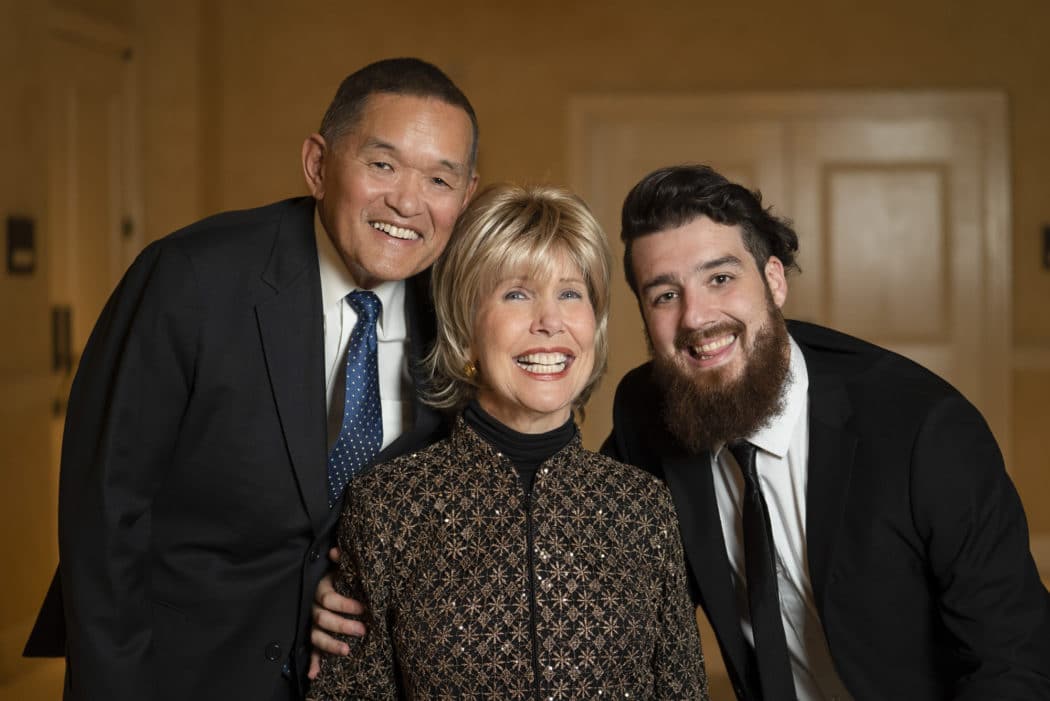Tourette Syndrome Awareness Month

Hi, I’m Joni Eareckson Tada with my really good friend, Chris Pearson.
Chris, thanks for coming to the studio, and quickly tell us what you do here at Joni and Friends.
CHRIS: I’m the photographer.
JONI: And, uh, you’ve got a great accent there from Scotland, is it?
CHRIS: That’s right, yes. I’m from Scotland.
JONI: You know, Chris, I’ve got you on today because, you know, this program is often about people with invisible disabilities And you’ve got an invisible disability; something called Tourette Syndrome. First, you’ve gotta tell us, what is Tourette Syndrome?
CHRIS: So, Tourette Syndrome is a disorder that brings forth tics; so, lots of involuntary tics, ah both motor tics and vocal tics.
JONI: Now when you say “tics,” I mean, are you talking about repetitive motions: flapping hands, blinking eyes, shaking of head, jerking of a hand; is that what you mean?
CHRIS: Uh, ya. All of the above, really. It depends on… it’s very different from person to person. But a tic could be defined as a movement, yes. So a vocal tic is, ah, not being able to stop yourself from making a noise or saying something. And then a motor tic is not being able to stop movements in your body.
JONI: Okay, so, right there, you’ve set the scene for a lot of people to not only have questions about Tourette Syndrome, but have some questions and fears about it. Do you think people, for the most part, are afraid of this condition?
CHRIS: Yes, I think so…I think that it’s always shown as very extreme. Every time you see it in the media or in anything like a movie or anything, it’s a very extreme version of it. It’s always shouting random words or making really large gestures repetitively.
JONI: So, what is your tic connected with Tourette Syndrome?
CHRIS: I have a few that have changed throughout the course of my life. I have one or two that have always stayed with me, and then I have a few that I’ve picked up along the way. And it was very much more extreme when I was a child, because I wasn’t able to control the tics at that point. They were very, kind of, pronounced. So I would do this thing where I would jump and I would kick my legs backwards, and then I also had one where I would whip my neck back really fast. And then I had verbal tics where I would make a pronunciation of the word “ah;” I’d make that really loudly.
JONI: Sometimes I notice that you clear your throat a lot. Now, is that part of it?
CHRIS: That is part of it. That is a new tic of mine that has been around for about a year. So something that is quite interesting about Tourette’s is that I try not to surround myself with other people with Tourette’s. Because once you hear somebody else’s tic it’s very easy for you to pick that tic up and then it becomes one of your tics, and that’s something that I try not to do. But I recently was watching a documentary about someone who had that same issue and then since then I just have not been able to shake that one.
JONI: Ah. So, how do you manage it? How do you control those tics?
CHRIS: Well, what you do is; it’s like a certain feeling you get from doing a tic that gives you, like, almost a satisfaction. It’s like when you have a sneeze and you hold that sneeze in, and you can feel yourself going further and further, and you need to get the sneeze out. And then after that you’re really satisfied. It’s exactly the same with a tic. It gets to the point where you…if you try to hold it in, you absolutely have to let it out or you just won’t feel right. So, it will just come out automatically. I tend to do smaller versions of it to make it feel like I’m doing the same tic.
JONI: Well Chris, you’ve just given us a tiny taste of your experience with Tourette’s. And friends, this week on our Joni and Friends podcast you’ll hear a more extended version of Chris’ story. Go directly to our website at joniandfriends.org and tune in. And while you’re on our website, go to our radio page ‘cuz I’ve posted a great photo of my friend Chris Pearson. You’ve gotta see this handsome Scotsman. God bless you Chris, thanks for being here.
CHRIS: Thank you very much.
© Joni and Friends
Tourette Syndrome Awareness Month
Did you know that Tourette Syndrome Awareness Month is May 15 – June 15? Tourette syndrome is a neurological disorder characterized by involuntary tics and vocalizations… and it’s a disability that’s not always discussed. Crystal has invited Chris Pearson back to the podcast to talk about the daily impact of Tourette syndrome.





